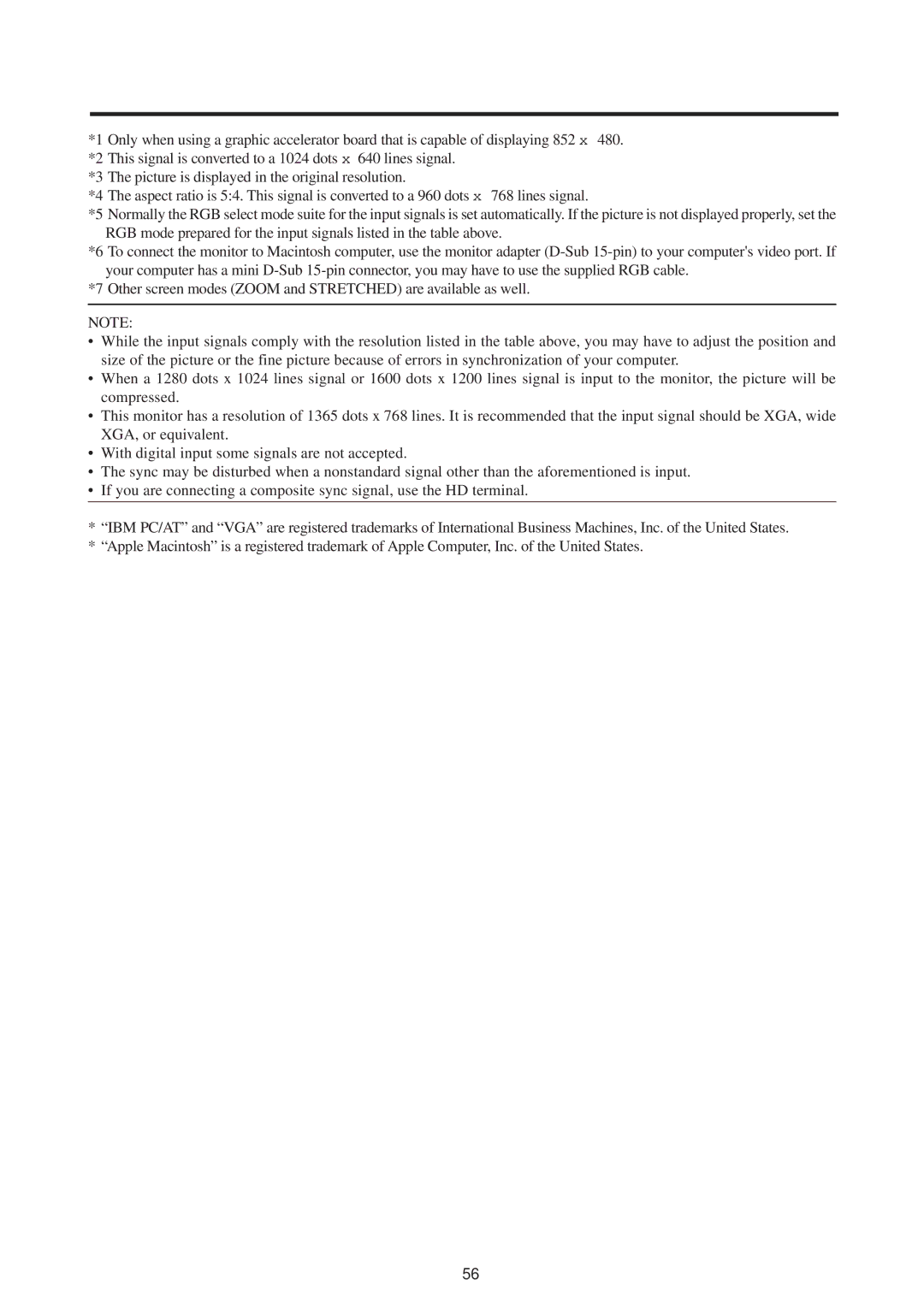
*1 Only when using a graphic accelerator board that is capable of displaying 852 x 480.
*2 This signal is converted to a 1024 dots x 640 lines signal.
*3 The picture is displayed in the original resolution.
*4 The aspect ratio is 5:4. This signal is converted to a 960 dots x 768 lines signal.
*5 Normally the RGB select mode suite for the input signals is set automatically. If the picture is not displayed properly, set the RGB mode prepared for the input signals listed in the table above.
*6 To connect the monitor to Macintosh computer, use the monitor adapter
*7 Other screen modes (ZOOM and STRETCHED) are available as well.
NOTE:
•While the input signals comply with the resolution listed in the table above, you may have to adjust the position and size of the picture or the fine picture because of errors in synchronization of your computer.
•When a 1280 dots x 1024 lines signal or 1600 dots x 1200 lines signal is input to the monitor, the picture will be compressed.
•This monitor has a resolution of 1365 dots x 768 lines. It is recommended that the input signal should be XGA, wide XGA, or equivalent.
•With digital input some signals are not accepted.
•The sync may be disturbed when a nonstandard signal other than the aforementioned is input.
•If you are connecting a composite sync signal, use the HD terminal.
*“IBM PC/AT” and “VGA” are registered trademarks of International Business Machines, Inc. of the United States.
*“Apple Macintosh” is a registered trademark of Apple Computer, Inc. of the United States.
56
